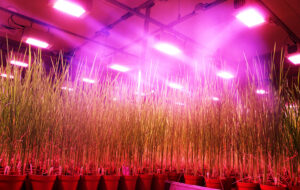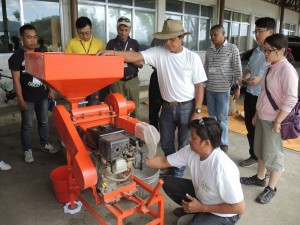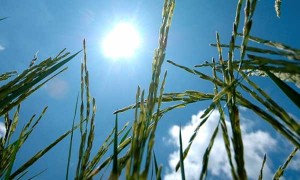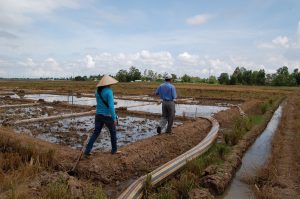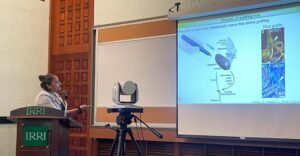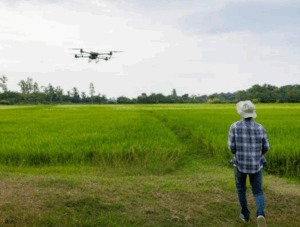Kellogg Company has achieved significant progress in its global efforts to support farmers, protect and restore ecosystems, and combat climate change.
The company has collaborated with more than 440,000 farmers in 29 countries through Kellogg’s Origins program, a global initiative to promote climate, social and financial resiliency.
The program includes partnerships to help communities restore agricultural ecosystems in Kellogg sourcing regions, using nature-based solutions to boost farm productivity.
Read the article at CISION PR Wire
More on Kellogg’s activities with farmers:
Conserving and increasing productivity and value of the heirloom rice in the Philippine Cordillera
The vision for HRP was shared by the institutions behind it, namely the International Rice Research Institute (IRRI), the Department of Agriculture-Regional Field Office (DA-RFO) of the Cordillera Administrative Region, and the Philippine Rice Research Institute (PhilRice). Each institution implemented the following strategies to fulfill its two goals of increasing farmers’ income and sustaining the heritage and food security in the rice terraces of the Cordillera Region.
The formation of HRP-assisted provincial cooperative in HRP Phase I paved the way for introducing those technologies easily to the intended farmers’ group. Aside from those interventions, the HRP team assisted the development of a model processing center in Bontoc, Mountain Province. The provincial cooperative Mountain Province Heirloom Rice Farmers Agriculture Cooperative received other essential pieces of machinery and postharvest materials from HRP through the Postharvest and Mechanization team and with the funds obtained from Kellogg’s.
Enriching the indigenous gems of the Philippine Cordillera through postharvest interventions
By enabling farmers to reduce their losses and add value to their traditional rice varieties with modern technology, the Heirloom Rice Project helped improve their profitability—an incentive to continue growing the rice and preserve a significant cultural heritage site that is threatened by neglect.
The machines helped improve the quality of heirloom rice by enabling more efficient milling, grading, and storage, which also minimized rice weevil infestation.
These machines were donated by Kellogg’s during the second phase of the project. The farmers were oriented in postharvest techniques in every demonstration of different technologies. The processing center now serves as a demo site for learning, capacity building, and an example for scaling.
The HRP team provided technical advice and assistance in establishing innovative technologies such as the compact milling machine, vacuum machine for packaging, equipment for carbon dioxide fumigation, grain length grader, digital balance, vacuum cleaner, and moisture meter.
The link between rice sustainability and food security
The United Nations Environment Programme’s focus in the rice sector is borne not only from its importance in feeding a growing and economically developing population but also from its relationship with the environment.
To help solve these problems and drive the adoption of climate-smart, sustainable best practices among rice smallholders in developing countries, UN Environment joined hands with the International Rice Research Institute in 2011 to create a public-private partnership with governments, researchers, and private-sector stakeholders called the Sustainable Rice Platform.

